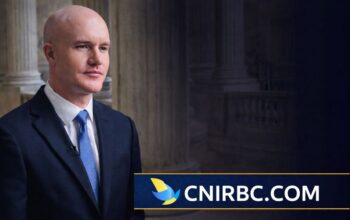Roger Ver, known as “Bitcoin Jesus” for his pivotal role in popularizing cryptocurrency, is contesting federal tax evasion charges. His legal team has filed a motion in a California federal court, accusing the U.S. government of overstepping its authority. The motion seeks to dismiss allegations of Ver failing to file tax returns for income generated during a period of substantial financial activity.
Ver’s attorneys argue that the indictment relies on a flawed interpretation of tax law and infringes on constitutional rights, particularly due process. They claim the prosecution’s approach exemplifies governmental overreach, a recurring theme in legal disputes involving the cryptocurrency industry.
🚨NEW from me: Roger Ver's legal team moves to dismiss indictment citing government overreach
Lawyers for @rogerkver, aka ‘Bitcoin Jesus,’ are hoping his tax evasion charges will get dropped as part of Trump’s promise to end #crypto regulatory blitz.https://t.co/NtOlAkUNfR
— Eleanor Terrett (@EleanorTerrett) December 4, 2024
Legal Arguments: Government Overreach and Crypto Compliance
The case highlights growing friction between crypto advocates and regulators, as authorities increasingly scrutinize the financial activities of prominent industry figures. Ver’s defense draws parallels with recent legal victories, including Ripple Labs’ partial win against the SEC and Grayscale’s landmark case, both of which criticized regulatory actions as “arbitrary and capricious.”
Implications for Cryptocurrency Regulation
The outcome of this case could have far-reaching consequences for digital asset taxation and compliance. If Ver succeeds, it may embolden other crypto entities to challenge enforcement actions, potentially reshaping how cryptocurrencies are treated under tax laws.
As the legal battle unfolds, its resolution may serve as a pivotal moment in defining the regulatory landscape for decentralized finance.
Stay informed on the latest developments in crypto law by following our updates.



